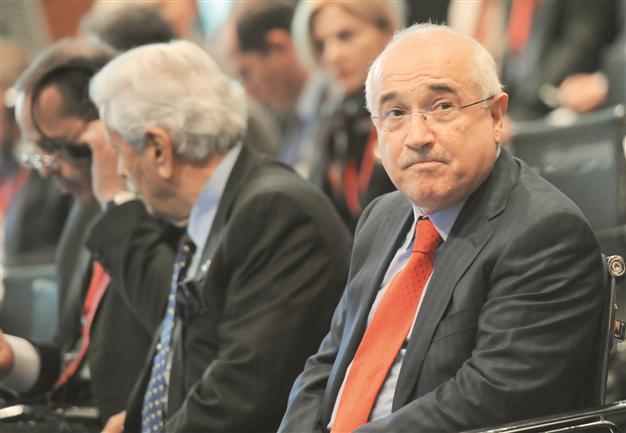Charter commission acts to settle CHP’s internal row
ANKARA – Hürriyet Daily News

Parliamentary Speaker Cemil Çiçek decides the party representatives in the new charter panel to first resolve their internal discrepancies. Daily News Photo
Parliamentary Speaker Cemil Çiçek has introduced a new formula in which party representatives in Parliament’s Constitution Conciliation Commission will come to the negotiation table after resolving their discrepancies following an internal row among the deputies of the main opposition Republican People’s Party (CHP).From now on, party representatives will meet before a commission session to align their views, so that the opinions of the party representatives will be credited as the official opinion of their respective parties. As such, CHP deputy Süheyl Batum’s recent objection to articles previously consented by other party members will not be acceptable.
Furthermore, once an article is decided, it will not be reversible in the following sessions by other deputies. If there are objections or opposing views on agreed articles, these will only be handled after negotiating all articles.
The legislative immunity issue, which caused the conflict among CHP members in the first place, remains unsettled and will be re-evaluated in the future. Hence, the consensus over 59 articles was kept, as members affirmed Çiçek’s proposal to do so. Now the commission will discuss the next 113 articles.
Kılıçdaroğlu discusses mother tongue issue
In the meantime, the leader of the CHP, Kemal Kılıçdaroğlu, discussed the mother tongue issue with his deputies on Sept. 12, a critical division among commission members. With Kılıçdaroğlu’s involvement, a positive approach toward BDP deputy Sırrı Süreyya Önder’s proposal on “Bulgarian model” was taken; the model sets learning Turkish as an obligation while freedom to education in one’s mother tongue is also under guarantee.
The CHP seeks to keep the expression “the language of education can only be Turkish” while reiterating that instruction in other languages upon demand can also be provided.
















